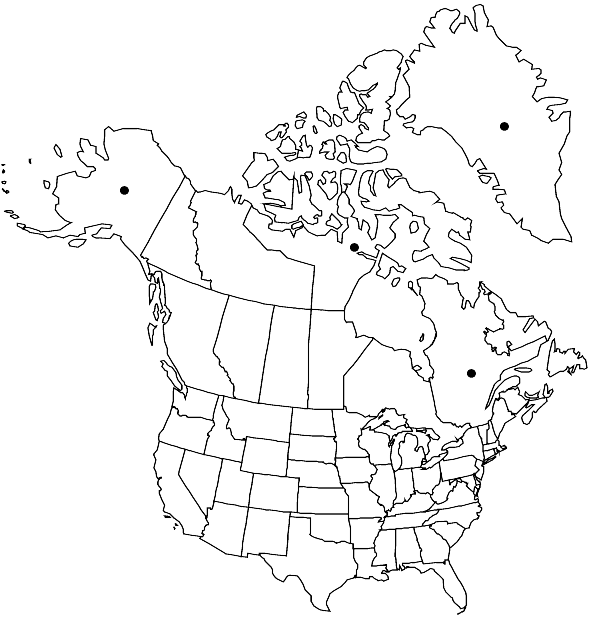Andreaea rupestris
Sp. Musc. Frond., 47, plate 7, fig. 2g–o. 1801,.
Plants reddish black, black or greenish brown. Leaves curved or secund to straight, wide-spreading to squarrose, short-lanceolate, widest proximally, apex oblique or symmetric; costa absent; leaf margins entire; basal laminal cells short- to long-rectangular, marginal cells rounded-quadrate to short-rectangular, walls sometimes thickened, usually pitted, straight; medial laminal cells quadrate to short-rectangular, 1-stratose or occasionally 2-stratose in patches, lumens rounded, rectangular or irregularly stellate; laminal papillae usually present, commonly large, whitish. Sexual condition cladautoicous or autoicous; perichaetial leaves differentiated, convolute-sheathing. Spores 20–32(–50) µm.
Habitat: Neutral to acidic boulders, cliffs and walls, generally wet sites
Elevation: low to moderate elevations
Distribution

Greenland, Alta., B.C., Man., N.B., Nfld. and Labr., N.W.T., N.S., Nunavut, Ont., Que., Sask., Yukon, Alaska, Ariz., Calif., Colo., Ga., Idaho, Maine, Mass., Mich., Minn., Mont., N.H., N.Y., N.C., Oreg., Tenn., Vt., Va., Wash., Wis., Wyo., Mexico, West Indies, Central America, South America, Eurasia, Africa, Atlantic Islands, Pacific Islands, Australia, Antarctica.
Discussion
Andreaea rupestris is a species of many morphological variants, more commonly identified by simple elimination. It is similar to A. obovata, but is distinguished by the leaves generally curving or secund, short-lanceolate, widest proximally, apices oblique or symmetric. The degree of expression of laminal papillae is variable on the same plant. Plants identified as A. alpestris, said to differ by straight leaves with low papillae, is probably best considered a high elevation form.
Selected References
None.